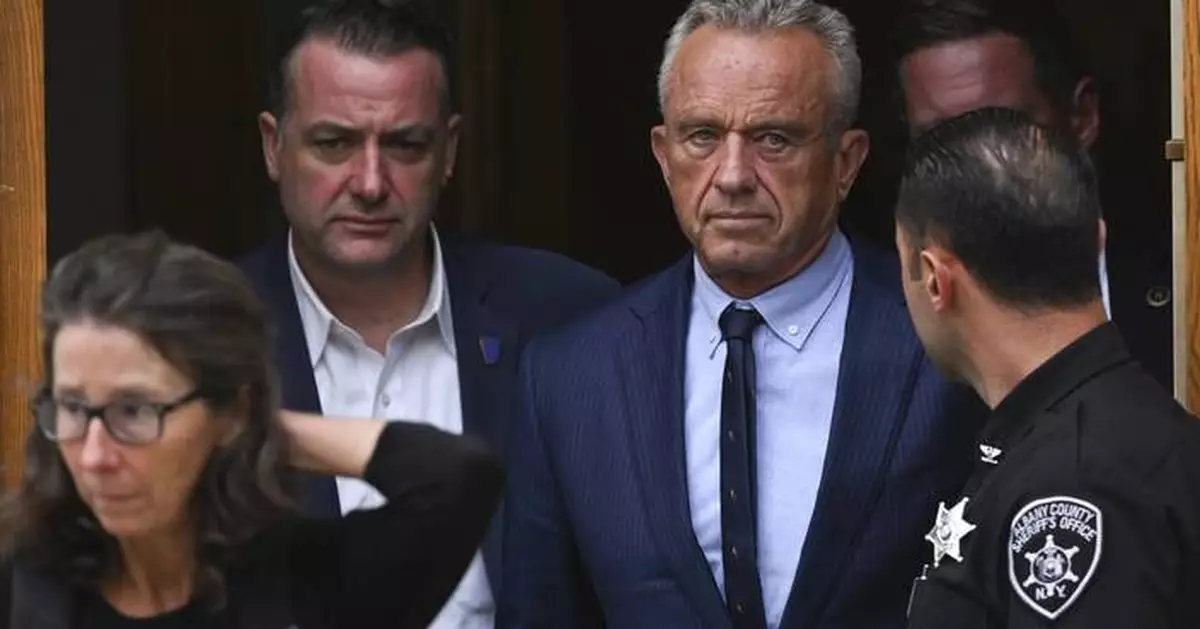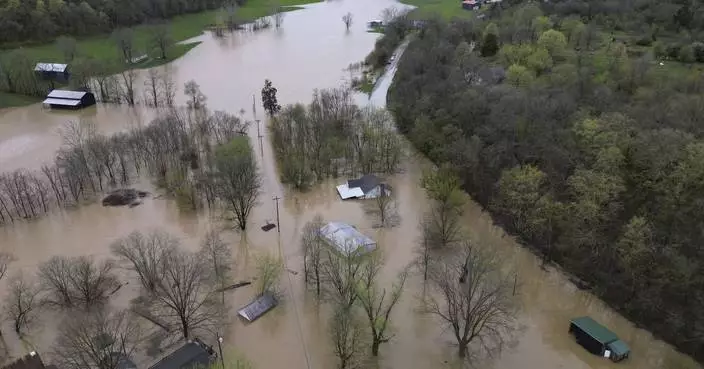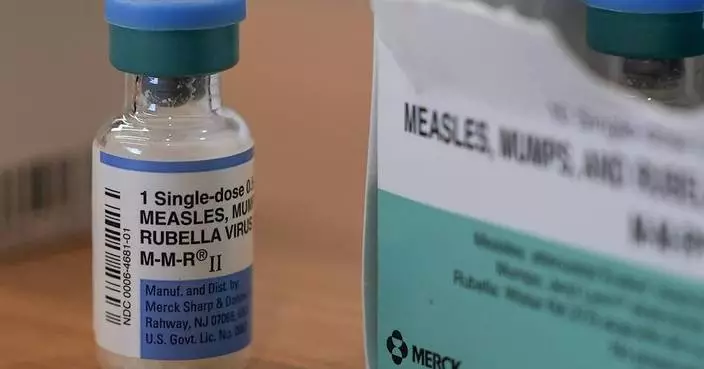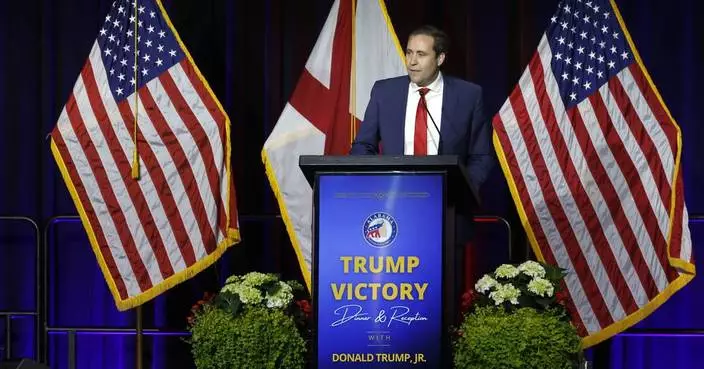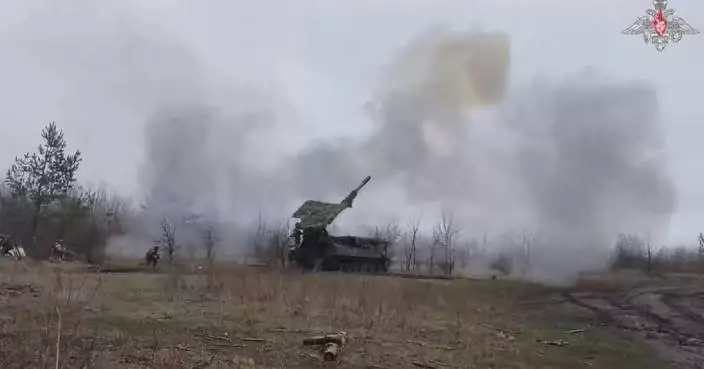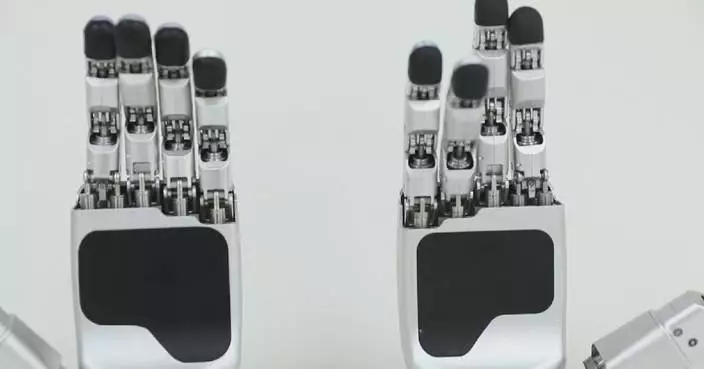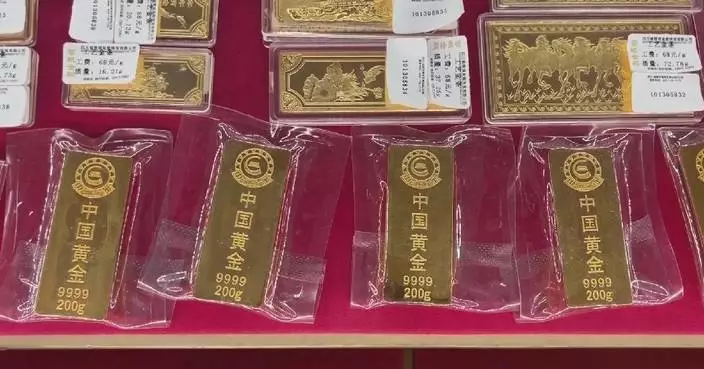ATLANTA (AP) — Three independent and third-party candidates got one step closer to appearing on Georgia's presidential ballot on Tuesday. But legal challenges still loom.
Georgia Secretary of State Brad Raffensperger announced that officials have verified that independents Robert F. Kennedy Jr. and Cornel West and Claudia De la Cruz of the Party for Socialism and Liberation each collected more than the 7,500 signatures needed to qualify.
Raffensperger said 11,336 signatures were accepted for Kennedy after county election officials reviewed petitions, while 8,075 were accepted for Cornel West and 7,682 were accepted for De la Cruz.
While Democrats, Republicans and Libertarians have secure places on the Georgia ballot, other parties and independent candidates can qualify by petition.
But Georgia Democrats are still legally challenging efforts to place the three candidates and Green Party nominee Jill Stein on Georgia's ballots. It is part of a nationwide effort to block candidates who could siphon votes from Vice President Kamala Harris.
Hearings on the Georgia challenges are scheduled to begin Monday. After an administrative law judge makes a recommendation, Raffensperger will issue a final ruling. A decision must be made in time for Georgia to mail military and overseas ballots beginning Sept. 17.
While some other states routinely put minor-party and independent candidates on ballots, Georgia voters haven’t had more than four options since 1948. The last time there were any candidates besides a Republican, Democrat and Libertarian was in 2000, when independent Pat Buchanan qualified.
Kennedy was kicked off New York's ballot earlier this week when a judge ruled that the address in New York City’s suburbs that Kennedy listed as a residence on nominating petitions was a “sham” address he used to maintain his voter registration and to further his political aspirations. The judge ruled in favor of challengers who argued Kennedy’s actual residence was the home in Los Angeles he shares with his wife, the “Curb Your Enthusiasm” actor Cheryl Hines. Kennedy has vowed to appeal
It is unclear if Kennedy's home address will be an issue in the Georgia hearings. Democrats have alleged that all the petitions followed improper procedures, making them invalid. The Kennedy campaign's Paul Rossi said in a July 31 online news conference that there was nothing wrong with the campaign's petitions, with Rossi describing the allegations as “throwing spaghetti at the wall.”
“Because they can’t challenge the signatures, they’ve made allegations which are simply not correct at all,” Rossi said.
Until this year, the only road to getting on the ballot in Georgia was by collecting signatures from 7,500 registered voters statewide. But Georgia's Republican-majority legislature passed a law directing the secretary of state to also place on the ballot candidates of any party that makes ballots in at least 20 other states. That move was widely interpreted as trying to make trouble for Biden, although former President Donald Trump's Republican campaign has also regarded the Kennedy campaign with suspicion.
The Green Party, which has nominated Stein, says it aims to make Georgia ballots using the 20-state rule.

FILE - Former Green Party presidential candidate Jill Stein waits to speak at a board of elections meeting at City Hall in Philadelphia, Oct. 2, 2019. (AP Photo/Matt Rourke, File)
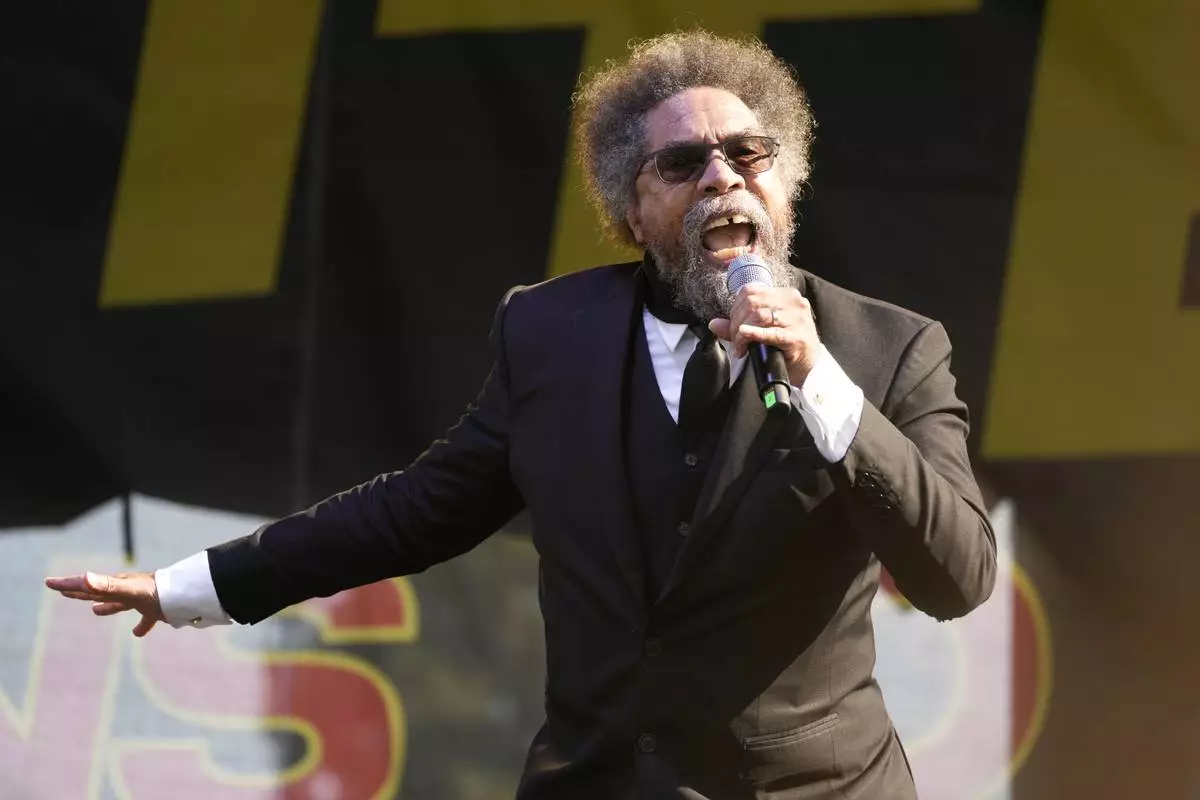
FILE - Scholar and activist Cornel West, who is running for U.S. president as a third-party candidate in 2024, speaks on Saturday, July 15, 2023, in Los Angeles. (AP Photo/Damian Dovarganes, File)
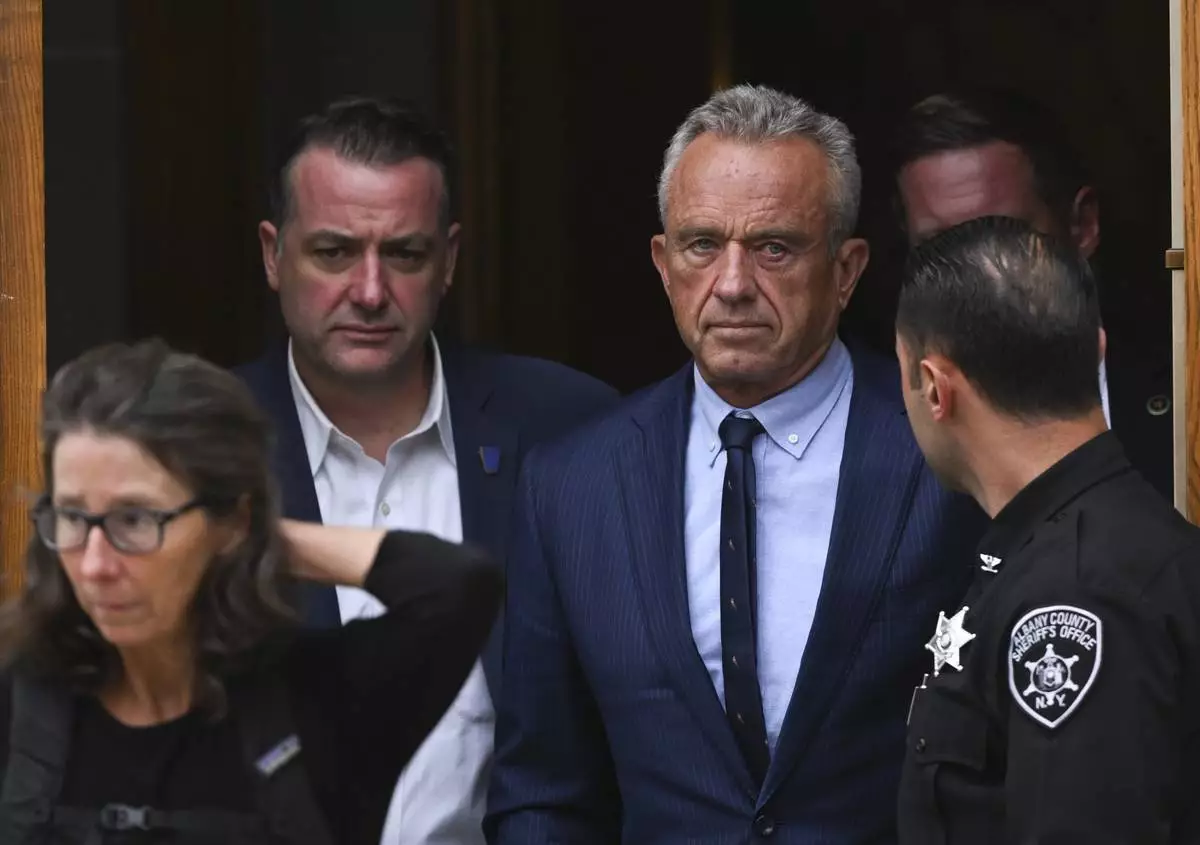
FILE - Independent presidential candidate Robert F. Kennedy Jr., center right, leaves the Albany County Courthouse, Aug. 6, 2024, in Albany, N.Y. (AP Photo/Hans Pennink, File)
Israeli Prime Minister Benjamin Netanyahu will meet President Donald Trump in Washington on Monday, becoming the first foreign leader to visit Trump since he unleashed tariffs on countries around the world.
Whether Netanyahu’s visit succeeds in bringing down or eliminating Israel’s tariffs remains to be seen, but how it plays out could set the stage for how other world leaders try to address the new tariffs.
Here's the latest:
The White House did not offer any immediate explanation for why the news conference was canceled, but Trump and Netanyahu were expected to make comments to reporters at the start of their scheduled Oval Office meeting.
President Trump threatened to raise the tariffs if Beijing doesn’t withdraw its retaliatory tariffs.
“At this point, it is extremely unlikely for China to back down,” said Yun Sun, director of the China program at the Washington-based think tank Stimson Center, adding any leadership summit between Trump and Chinese President Xi Jinping “doesn’t appear likely in the near future.”
“China is increasingly convinced that the tariff is not negotiable because Trump’s eventual goal is to bring manufacturing jobs back to the U.S.,” Sun said.
Craig Singleton, senior China fellow at another Washington-based think tank Foundation for Defense of Democracies, called Trump’s threat Monday “a blunt ultimatum to Beijing that sharply raises the takes in the U.S.-China tariff war.” He said Beijing’s rigid system and fear of looking weak prevent Xi from opening back channels with the Trump administration that could offer relief.
A member of Elon Musk’s Department of Government Efficiency team has terminated some of the last remaining life-saving programs for refugees and others in the Middle East, two U.S. and U.N. officials tell The Associated Press.
The AP viewed some of the new contract termination notices, sent late last week by Jeremy Lewin, a DOGE associate now overseeing the dismantling of USAID. A USAID official and an official with the U.N. spoke to the AP on condition of anonymity because they weren’t authorized to speak.
The move severs U.S. funding for some key projects by the World Food Program, the world’s largest provider of food aid. Another notice viewed by the AP terminated funding for sending Afghan women overseas for education. An administrator for the program, which is a project of Texas A & M University, said the women would now face return to Afghanistan, where their lives may be in danger from the Taliban. That administrator also spoke on condition of anonymity because that person wasn’t authorized to speak.
— Ellen Knickmeyer and Sam Magdy
The Monday visit was to congratulate the baseball team for winning the World Series last season.
Trump singled out several Los Angeles Dodgers for their achievements last season, praising Ohtani for becoming baseball’s first 50/50 player, Japanese pitcher Yoshi Yamamoto and NL Championship Series MVP Tommy Edman.
Trump praised Betts for his play — and took a dig at the Boston Red Sox for trading him to the Dodgers — and they shook hands at the ceremony.
Trump also boasted that egg prices have dropped “73%” on his watch and he refused to introduce some senators at the ceremony, because “I just don’t particularly like them, so I won’t introduce (them).”
Trump campaigned last year in opposition of the deal, saying a Japanese company’s acquisition of the company would hurt American manufacturing. But shortly after becoming president, Trump said he’d reached an agreement for Nippon Steel to instead invest in U.S. Steel without providing details.
The directive signed Monday by Trump would give the Committee on Foreign Investment in the United States, CFIUS, 45 days to review the proposed purchase.
It raises fresh concerns that Trump’s drive to rebalance the global economy could lead to a trade war.
The threat, which Trump delivered Monday on social media, came after China said it would retaliate against U.S. tariffs announced last week.
“If China does not withdraw its 34% increase above their already long term trading abuses by tomorrow, April 8th, 2025, the United States will impose ADDITIONAL Tariffs on China of 50%, effective April 9th,” he wrote on Truth Social. “Additionally, all talks with China concerning their requested meetings with us will be terminated!”
Trump has remained defiant as the stock market continued plunging and fears of a recession grew.
▶ Read more about Trump’s tariffs
The Trump administration has notified the World Food Program and other partners that it’s terminated some of the last remaining lifesaving humanitarian programs across the Middle East, a U.S. and U.N. official told The Associated Press.
An official with USAID says about 60 letters canceling contracts were sent over the past week, including to the World Food Program.
An official with the United Nations says WFP received termination letters for Lebanon, Jordan and Syria.
The USAID official says U.S. funding for key programs in Yemen, Somalia, Afghanistan and Zimbabwe also were affected, including those providing food, water, medical care and shelter for people displaced by war.
▶ Read more about the canceled USAID contracts
— Ellen Knickmeyer and Sam Magdy
The Justice Department argued in an emergency appeal to the justices that U.S. District Judge Paula Xinis overstepped her authority when she ordered Kilmar Abrego Garcia returned to the United States.
Abrego Garcia is no longer in U.S. custody and the government has no way to get him back, the administration argued.
Xinis gave the administration until just before midnight Tuesday to “facilitate and effectuate” Abrego Garcia’s return.
The federal appeals court in Richmond, Virginia, denied the administration’s request for a stay.
▶ Read more about Kilmar Abrego Garcia’s deportation
Wilmer Escaray left Venezuela in 2007 and enrolled at Miami Dade College, opening his first restaurant six years later.
Today, he has a dozen businesses that hire Venezuelan migrants like he once was, workers who are now terrified by what could be the end of their legal shield from deportation.
Since the start of February, the Trump administration has ended two federal programs that together allowed more 700,000 Venezuelans to live and work legally in the U.S. along with hundreds of thousands of Cubans, Haitians and Nicaraguans.
In the largest Venezuelan community in the United States, people dread what could face them if lawsuits that aim to stop the government fail. It’s all anyone discusses in “Little Venezuela” or “Doralzuela,” a city of 80,000 people surrounded by Miami sprawl, freeways and the Florida Everglades.
▶ Read more about fears in Miami’s ‘Little Venezuela’
The Monday meeting will make Netanyahu the first foreign leader to visit Trump since he unleashed tariffs on countries around the world.
Whether Netanyahu’s visit succeeds in bringing down or eliminating Israel’s tariffs remains to be seen, but how it plays out could set the stage for how other world leaders try to address the new tariffs.
Netanyahu’s office has put the focus of his hastily organized Washington visit on the tariffs, while stressing that the two leaders will discuss major geopolitical issues including the war in Gaza, tensions with Iran, Israel-Turkey ties and the International Criminal Court, which issued an arrest warrant against the Israeli leader last year. Trump in February signed an executive order imposing sanctions on the ICC over its investigations of Israel.
▶ Read more about Trump’s meeting with Netanyahu
The stock market briefly spiked on a report that Kevin Hassett, a top White House economic adviser, said the president was considering a 90-day pause on tariffs.
The supposed remark from Hassett circulated on social media, but no one could pinpoint where it came from even as the market flashed from red to green.
Hassett had spoken to Fox News earlier in the morning, when he was asked about a potential pause. However, he was noncommittal.
“I think the president is going to decide what the president is going to decide,” he said.
▶ Read more updates on the financial markets
Vance’s mother, Beverly Aikins’ on Friday received a 10-year sobriety medallion in the Roosevelt Room at a ceremony with friends and family.
Vance described Aikins’ past drug addiction in his bestselling book “Hillbilly Elegy.”
The cases are likely headed to a Supreme Court showdown on the president’s power over independent agencies.
A divided U.S. Court of Appeals for the District of Columbia Circuit issued the ruling in the lawsuits separately brought by Merit Systems Protection Board member Cathy Harris and National Labor Relations Board member Gwynne Wilcox.
The ruling reverses, at least for now, a judgement from a three-judge panel from the same appellate court.
▶ Read more about Trump and the board members
The dispute over tariffs has caused some fracturing within Trump’s political coalition.
Hedge fund manager Bill Ackman said the president was “launching a global economic war against the whole world at once” and urged him to “call a time out.”
“We are heading for a self-induced, economic nuclear winter,” he wrote on X on Sunday.
Top White House economic adviser Kevin Hassett told Fox News on Monday morning that Ackman should “ease off the rhetoric a little bit.”
Hassett said critics were exaggerating the impact of trade disputes and talk of an “economic nuclear winter” was “completely irresponsible rhetoric.”
The president showed no interest in changing course despite turmoil in global markets.
He said other countries had been “taking advantage of the Good OL’ USA” on international trade.
“Our past ‘leaders’ are to blame for allowing this, and so much else, to happen to our Country,” he wrote on Truth Social. “MAKE AMERICA GREAT AGAIN!”
Trump criticized China for increasing its own tariffs and “not acknowledging my warning for abusing countries not to retaliate.”
On a day when stock markets around the world dropped precipitously, Alabama Republican Party Chairman John Wahl led a celebration of the president whose global tariffs sparked the sell-off.
With no mention of the Wall Street roller coaster and global economic uncertainty, Wahl declared his state GOP’s “Trump Victory Dinner” — and the broader national moment — a triumph. And for anyone who rejects Trump, his agenda and the “America First” army that backs it all, Wahl had an offer: “The Alabama Republican Party will buy them a plane ticket to any country in the world they want to go to.”
Wahl’s audience — an assembly of lobbyists and donors, state lawmakers, local party officials and grassroots activists — laughed, applauded and sometimes roared throughout last week’s gala in downtown Birmingham.
Yet beyond the cheerleading, there were signs of a more cautious optimism and some worried whispers over Trump’s sweeping tariffs, the particulars of his deportation policy and the aggressive slashing by his Department of Government Efficiency.
▶ Read more about Trump’s support in Alabama
This morning, at 11 a.m., World Series Champions, the Los Angeles Dodgers, will visit the White House and meet the president. Later, at 1 p.m., Israel Prime Minister Benjamin Netanyahu will visit the White House and meet with Trump. At 2 p.m., Netanyahu and Trump will participate in a Bilateral Meeting in the Oval Office. At 2:30 p.m., they will hold a joint news conference.
Trump said Sunday that he won’t back down on his sweeping tariffs on imports from most of the world unless countries even out their trade with the U.S.
Speaking to reporters aboard Air Force One, Trump said he didn’t want global markets to fall, but also that he wasn’t concerned about the massive sell-off either, adding, “sometimes you have to take medicine to fix something.”
His comments came as global financial markets appeared on track to continue sharp declines once trading resumes Monday, and after Trump’s aides sought to soothe market concerns by saying more than 50 nations had reached out about launching negotiations to lift the tariffs.
The higher rates are set to be collected beginning Wednesday. Treasury Secretary Scott Bessent said unfair trade practices are not “the kind of thing you can negotiate away in days or weeks.” The United States, he said, must see “what the countries offer and whether it’s believable.”
▶ Read more about the global impact of Trump’s tariffs

Pedestrian are reflected on a brokerage house's window as an electronic board displays shares trading index, in Beijing, Monday, April 7, 2025. (AP Photo/Andy Wong)

Shipping containers are stored at Bensenville intermodal terminal in Franklin Park, Ill., Sunday, April 6, 2025. (AP Photo/Nam Y. Huh)
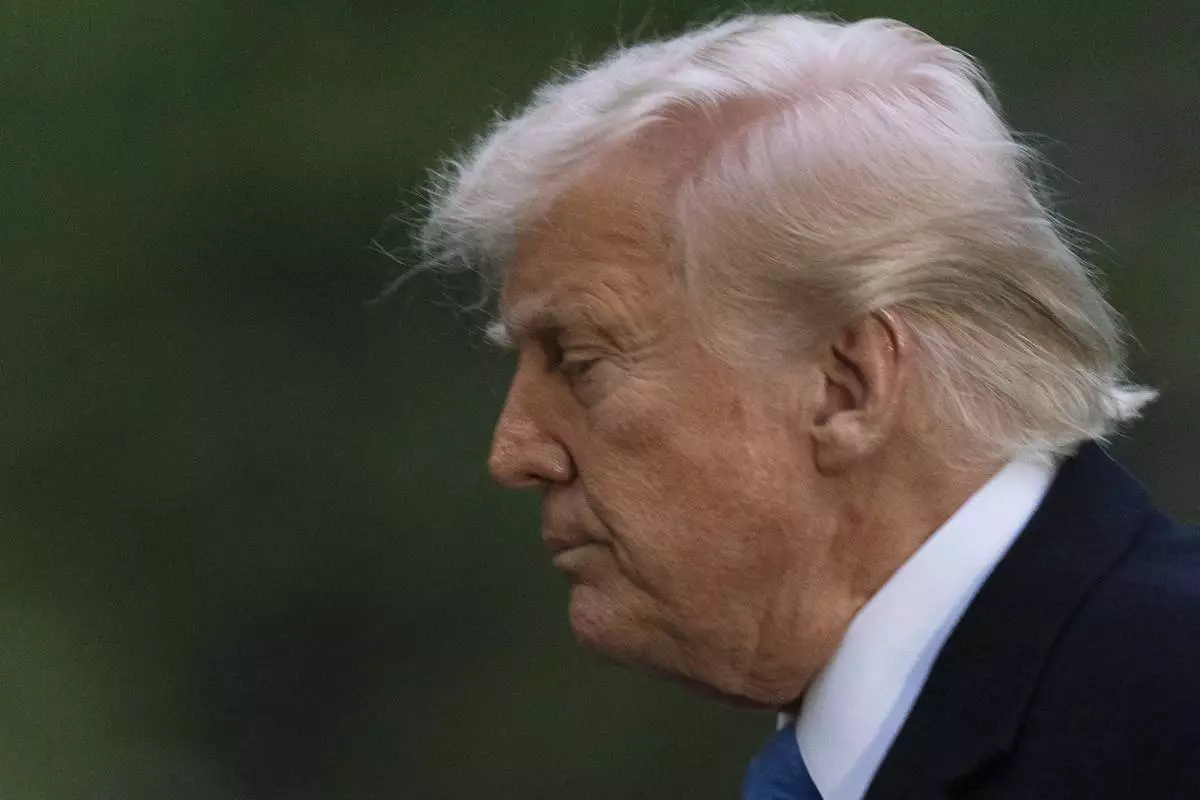
President Donald Trump arrives at the White House on Marine One, Sunday, April 6, 2025, in Washington. (AP Photo/Manuel Balce Ceneta)





